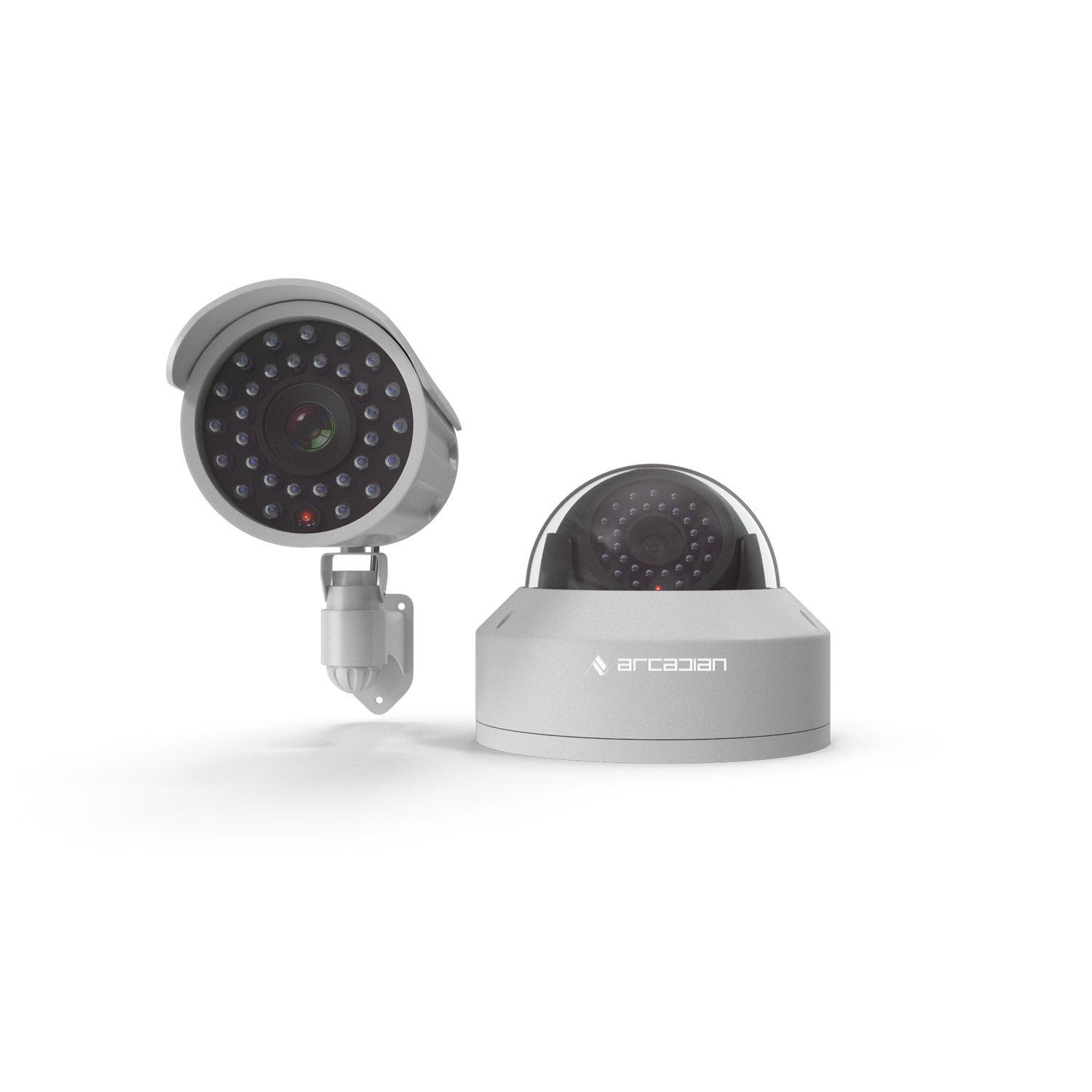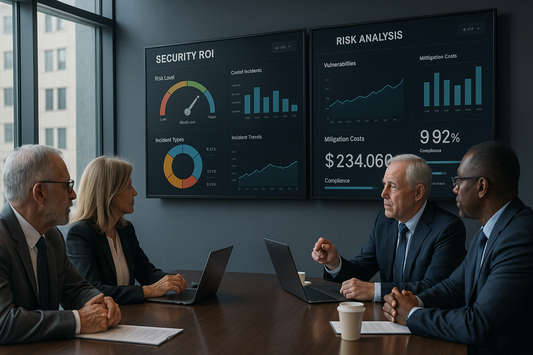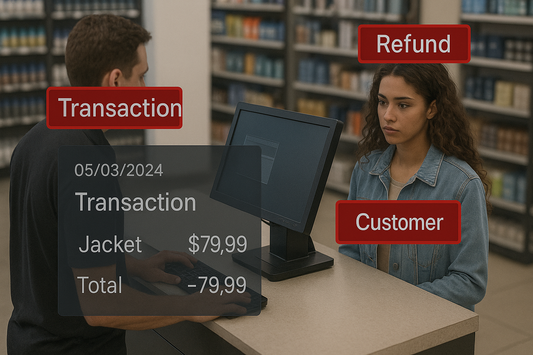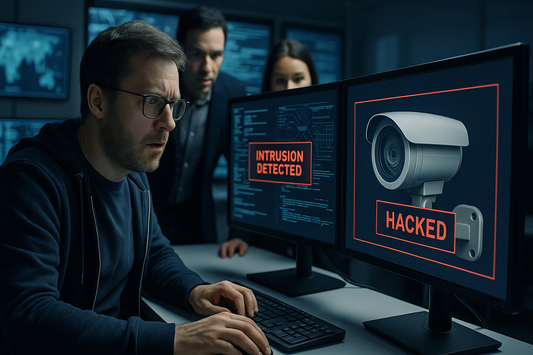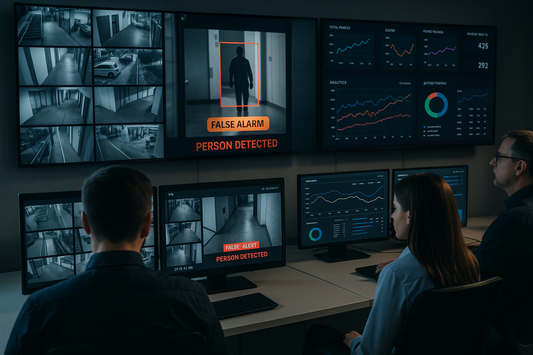How Long Do Stores Keep Shoplifting Records? What Every Business Owner Should Know
Ever wonder how long a retail store keeps records of shoplifting incidents? Whether you're a business owner, employee, or even a customer, the answer might surprise you. From security camera footage to detailed incident reports, stores don’t just document shoplifting to catch a thief in the moment—they’re also building a...
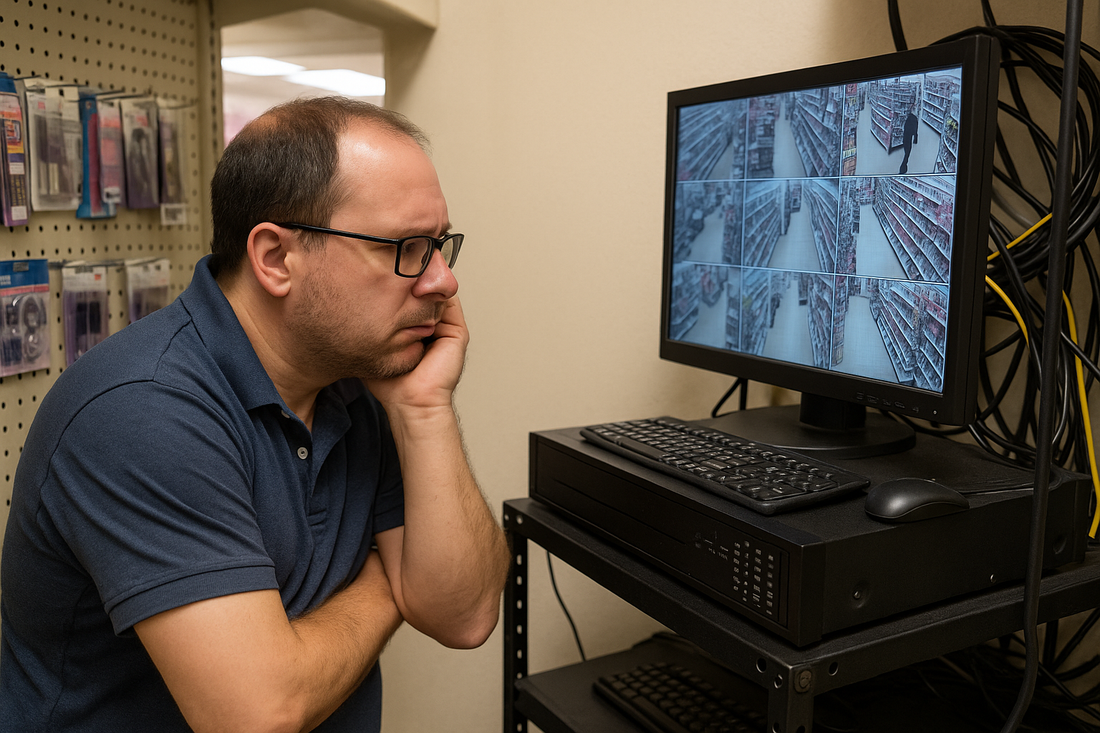
- How Long Do Retailers Typically Keep Shoplifting Records?
- What Determines How Long Stores Keep the Records?
- How AI Is Changing the Way Stores Handle Theft Incidents
- Case in Point: What Happens When You Don’t Retain Long Enough
- Best Practices for Managing Shoplifting Records in 2025
- Reverse Thinking: Keeping Records = Preventing Crime
- Where ArcadianAI Comes In
- Final Thoughts
- Ready to Stop Theft Before It Costs You?
- FAQs
Ever wonder how long a retail store keeps records of shoplifting incidents? Whether you're a business owner, employee, or even a customer, the answer might surprise you.
From security camera footage to detailed incident reports, stores don’t just document shoplifting to catch a thief in the moment—they’re also building a trail of evidence that could matter weeks, months, or even years later.
In this post, we’ll break down the real-world policies, legal implications, and technologies behind shoplifting record retention—and why smarter businesses are upgrading to AI-powered surveillance like ArcadianAI to manage it all.
How Long Do Retailers Typically Keep Shoplifting Records?
Let’s cut to the chase: Most retail stores keep shoplifting records for anywhere from 30 days to 5 years, depending on the type of record and how the incident unfolded.
Here’s a quick breakdown:
|
Type of Record |
Typical Retention Period |
|
Surveillance Footage (NVR/DVR) |
7–30 days (limited by storage space) |
|
Cloud-based AI Footage (Tagged Incidents) |
90 days to permanent |
|
Internal Incident Reports |
1–5 years |
|
Police or Insurance Files |
5+ years or indefinitely |
What Determines How Long Stores Keep the Records?
1. Store Policy & Corporate Protocols
Big retailers (think Walmart or Target) often follow strict internal guidelines. These chains typically keep incident reports and video longer than smaller shops due to legal risk and volume of claims.
2. Technology Stack
-
Stores with NVRs (network video recorders) often overwrite footage every 7–14 days.
- Those using cloud-based video surveillance—especially with AI tagging like ArcadianAI—can retain critical moments indefinitely while discarding irrelevant footage.
3. Legal & Insurance Needs
If police get involved, or an insurer needs proof for a claim, the retailer may be required to preserve all records related to that event for years.
Pro Tip: In some jurisdictions, statutes of limitations for theft cases can extend up to 2–5 years, so businesses often align their recordkeeping with that timeframe.
How AI Is Changing the Way Stores Handle Theft Incidents
Traditional systems make it hard to find “that one clip” from three weeks ago.
But with AI surveillance, the process is smarter:
-
Auto-detection of suspicious behavior
-
Behavioral analytics vs. basic motion detection
-
Cloud-based storage of only relevant events
-
Tagging and labeling of incidents for easy search
Imagine this:
A shoplifter distracts staff while an accomplice walks out with merchandise. It’s caught on camera, but no one notices at the time. With ArcadianAI, the system flags this behavior, stores the footage, and alerts the manager—even if no one was watching live.
That’s the power of proactive protection.
Case in Point: What Happens When You Don’t Retain Long Enough
A small electronics store in Ontario lost over $6,000 in inventory due to a repeat shoplifter. The problem? Their DVR overwrote the footage every 10 days, and by the time they realized the pattern, all video evidence was gone.
No video = no arrest = no insurance claim.
Now they use ArcadianAI to auto-tag suspicious activity and keep a digital trail for up to 12 months.
Best Practices for Managing Shoplifting Records in 2025
-
Use AI to monitor behavior, not just movement Basic motion sensors aren’t enough anymore.
-
Set custom retention rules Cloud platforms let you choose how long to keep flagged footage.
-
Log every incident, no matter how minor What seems small today may be a pattern in 30 days.
-
Integrate your POS and surveillance Link transactions with video to detect refund fraud or fake returns.
- Automate alerts Don’t rely on someone checking hours of footage—AI should do that for you.
Reverse Thinking: Keeping Records = Preventing Crime
It’s easy to think of surveillance as reactive—catching a thief after the fact. But when you keep records intelligently, it becomes a preventive force:
-
Repeat offenders know they’re being watched
-
Employees are less likely to commit internal theft
-
Insurers are quicker to reimburse claims
-
Police have the evidence they need—fast
Where ArcadianAI Comes In
ArcadianAI isn’t just a camera platform—it’s an always-on, always-learning AI monitoring assistant.
Auto-tags suspicious behavior
Sends real-time alerts to your phone or dashboard
Stores critical moments securely in the cloud
Lets you search incidents by behavior, not timestamps
No more wasting hours scrubbing through old footage. Ranger (ArcadianAI’s AI assistant) doesn’t forget, doesn’t sleep, and doesn’t miss a thing.
Final Thoughts
So how long do stores keep shoplifting records?
It depends. But in the AI age, the better question is:
How long should you keep the records that actually matter?
With the right system, it’s not about how much you store—it’s about storing the right moments, for as long as you need them.
Stay ahead of threats.
Build an audit trail.
Protect your profits.
Ready to Stop Theft Before It Costs You?
Don’t let outdated systems cost you thousands. Book a free demo with ArcadianAI today
and see how AI surveillance is changing the rules of retail security.
FAQs
How long do most stores keep surveillance footage?
Most stores keep footage for 7–30 days, though cloud systems can retain flagged clips much longer.
Why do some stores retain shoplifting records for several years?
Records may be needed for legal cases, insurance claims, or to track repeat offenders.
Can AI help identify shoplifters even if staff misses the incident?
Yes, AI systems like ArcadianAI can flag suspicious behavior automatically, even if no one is watching live.
What happens if video footage is overwritten too soon?
Important evidence can be lost, making it difficult to press charges or file insurance claims.
Do all types of shoplifting records have the same retention period?
No, retention varies—incident reports can last years, while typical footage may only last days.
How does AI surveillance differ from traditional systems?
AI systems detect patterns in behavior and store only relevant events, saving time and storage.
Is it legal to store surveillance footage indefinitely?
Generally yes, but businesses must follow privacy laws and local regulations regarding data storage.
What’s the benefit of linking POS systems with surveillance?
It helps detect refund fraud, fake returns, and matches transactions to video for stronger evidence.
Should small businesses also invest in AI surveillance?
Yes, especially if theft risk is high—AI can offer scalable, efficient protection even for small stores.
How can storing records prevent future shoplifting?
It creates accountability, deters repeat offenders, and helps authorities act quickly when needed.

Security is like insurance—until you need it, you don’t think about it.
But when something goes wrong? Break-ins, theft, liability claims—suddenly, it’s all you think about.
ArcadianAI upgrades your security to the AI era—no new hardware, no sky-high costs, just smart protection that works.
→ Stop security incidents before they happen
→ Cut security costs without cutting corners
→ Run your business without the worry
Because the best security isn’t reactive—it’s proactive.
